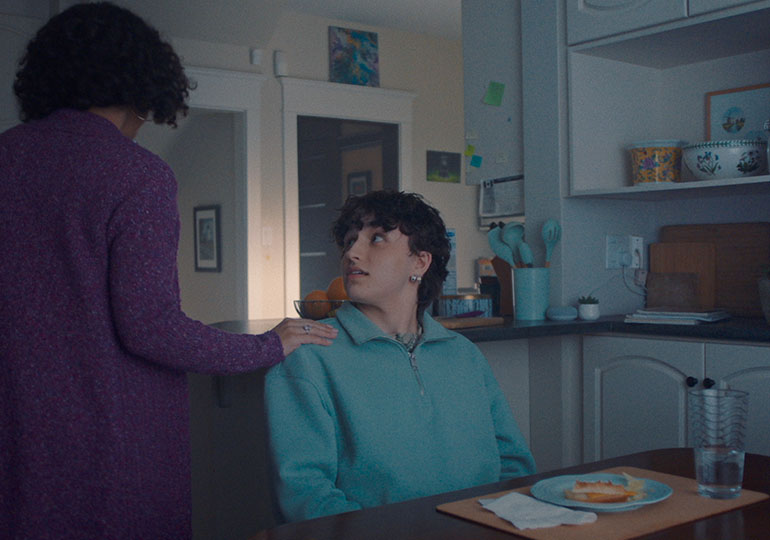Recovery from an eating disorder is possible with professional help and support from people around you.
The first step to recovery is to recognize that you’re struggling. Acknowledging that you may have an eating disorder can be very challenging. It can also be difficult to ask for help. Lots of people who have an eating disorder want to keep it a secret, but talking to someone is an important step in getting the help and support you need.
If you don’t know who to talk to or what to say, you can always contact a Kids Help Phone counsellor at 1-800-668-6868. They will never judge you and can help you think about who you can talk to for more information and where you can go to get additional support.
As you get better…
Recovering from an eating disorder can be difficult. It may bring up a lot of different feelings, including fear. Some people find that the eating disorder has become a part of their personality and even describe it as a “best friend.” Letting go of something that you’ve used to deal with your problems can be scary, especially if you don’t have other coping strategies.
It’s common to have mixed feelings about recovering from an eating disorder. Talking about your fears is a good way to make them seem less powerful. If you ever feel overwhelmed, try to remember how brave you are — you’ve already come this far.
Things you can do
If you’re struggling with an eating disorder, you may feel a lot of confusion and stress. Recovering can be a long process with many ups and downs and you may have a hard time if you’re doing it on your own. If you need help, contact Kids Help Phone at 1-800-668-6868 to speak with a counsellor. They can offer support and also refer you to resources around you.
Doing small, manageable things to feel better about yourself, your health and your body can make it a lot easier to cope. You can:
• Talk to someone
Talking to a safe adult about what you’re going through can help you feel less alone. Keep in mind that not everyone will know a lot about eating disorders. You can always call a Kids Help Phone counsellor at 1-800-668-6868 to talk. They can refer you to professionals who can support you through your healing process.
• Be kind to yourself
Surround yourself with reminders that you deserve a healthy, happy life. Try writing down some of your positive qualities. (If you’re having trouble thinking of them, you could try asking your family and friends what they love about you.) Find other ways to be kind to yourself, even when you don’t feel like it. Think of things that make you feel comfortable and safe. It could be as simple as spending time with a friend, watching your favourite movie or going for a walk with someone in your family you like talking to.
• Surround yourself with positive people
It’s important to surround yourself with people who make you feel better about yourself. Choose friends who recognize your positive qualities and accept you the way you are. Try to avoid spending time with people who are also very focused on their own shape and weight — this can make it more difficult for you to recover.
• Avoid magazines and other sources of harmful images
Fashion magazines often present pictures of airbrushed models who are unrealistically thin. These types of images can fuel an eating disorder and make it more difficult for you to recover.
• Be realistic
Many people with eating disorders like to do things perfectly. Try to remember that it’s not possible to be perfect. Everyone makes mistakes and that’s OK! Be gentle with yourself and give yourself space to just be who you are.
• Learn about healthy eating
Healthy eating and nutrition is all about flexibility, balance and variety including three meals a day plus snacks.
• Practise breathing exercises
Breathing exercises can help you relax and connect with your body. While you’re focusing on your breathing, there is less space in your head for overwhelming, intrusive thoughts.










